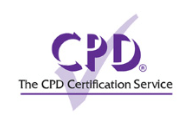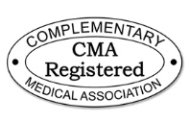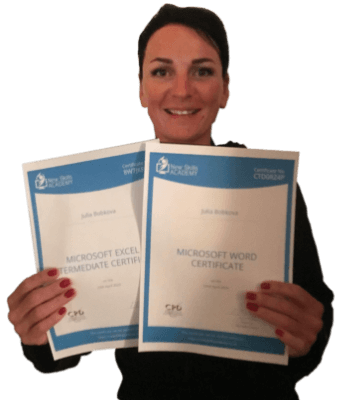Learning Blog
Most Common Disabilities Special Education Needs Teachers Deal With
 As a teacher or a special education needs teacher, you will come across children with a range of learning disabilities and difficulties.
These children deserve an education, but they can make teaching them a frustrating and challenging experience. Children vary in how severe their learning issues are, some will have mild problems which can be monitored, enabling them to go to mainstream classes and then you have those that are severe and require special education so they don't slow down the classes at the school.
There are some disabilities which are more common than others. There are seven common disabilities you will experience as a special education needs teacher in the United Kingdom and these include:
As a teacher or a special education needs teacher, you will come across children with a range of learning disabilities and difficulties.
These children deserve an education, but they can make teaching them a frustrating and challenging experience. Children vary in how severe their learning issues are, some will have mild problems which can be monitored, enabling them to go to mainstream classes and then you have those that are severe and require special education so they don't slow down the classes at the school.
There are some disabilities which are more common than others. There are seven common disabilities you will experience as a special education needs teacher in the United Kingdom and these include:
ADD or ADHD
ADD (Attention Deficit Disorder) or ADHD (Attention Deficit Hyperactivity Disorder) is exceptional common affecting around two children per class or five percent of school going children. This particular disability makes it very hard for children to pay attention and sit still, they struggle to concentrate and as a result they find themselves falling behind their peers. The problem is when dealing with children with ADD or ADHD is that they tend to become disruptive in the class room and they provide some interesting and rather challenging behaviours that teachers need to deal with. This is because they get frustrated, they are not interested in the teaching because they lost concentration ages ago. Children with this disability can be taught coping skills and as a special education needs teacher you will want to focus on quality over quantity. Rather give the child smaller projects to complete and have them done well than larger projects, which they are going to stop working on. Provide them with simple work sheets and provide them with the support and understanding they need to reduce the risk of bad behaviour and disruption in the classroom.Dysphasia
Dysophasia is a common language disability where children will vary in how bad their condition is. Some children will have no speech, while others will only have issues with certain languages, such as naming things. Dysphasia is very common in people who have suffered a stroke, but it is seen in children. The child may be able to sing but not speak or they may be able to read but not write. In many instances with this particular disorder the child is unable to perceive the sound of the words, as a result they have issues talking, understanding and listening. It is important that you are aware these children are often highly intelligent and the disability they have only affects their language and communications, which can lead to frustration.Autism
Autism is more common than you may think. ASD or autism spectrum disorder can be a verbal or non verbal issue. The children often has social problems and they have issues when it comes to communicating their needs. Children with autism vary from mild problems to severe issues where they cannot look or communicate, even with their own parents. You will find that when working with children with autism in the class room they have problems understanding instruction and they relate better when there is a set routine and structure in the room. If you have a child with autism in the class, then make the process of the class the same every day on how the children enter the class, how they are greeted and how the entire lesson plays out. These children relate better when they understand what is going on and what to expect.Cerebral Palsy
Cerebral Palsy children may find themselves faced with problems when it comes to physical, but they are mentally the same as all the other children in the school. These children require the same education as the mainstream classes. They have a very high IQ. When working with cerebral palsy children, you need to focus on ways of modifying their worksheets, projects and tests so that they can take part and complete their education. Equipment needs to be modified, classrooms need to be able to accommodate a wheelchair and you have to come up with innovative ways to modify their tests and worksheets, such as a computer version, so the children can use a keyboard rather than writing.Down Syndrome
Down syndrome is very common in the United Kingdom and affects one in nine hundred births. Children with down syndrome have distinct physical characteristics, some of them will also have visual and auditory problems as well. The degree of the disorder can vary from mild to moderate mental retardation, which means the children can still take part in a mainstream class and be part of the normal school and education experience. Down syndrome children thrive in a normal school environment with extra speech therapy. You will have to make modifications to their worksheets and projects, making it easier for them to manage.Dyslexia
Dyslexia is a very common learning difficulty that is experienced in children and into adulthood. This alters the way the brain processes written materials from writing to numbers. It is very challenging for these children to learn how to read, write and spell. Most children with dyslexia are highly intelligent, it is only their reading and writing that is the issue. Dyslexia can result in low self-esteem and leave the child frustrated. As a teacher you can make use of index card, provide verbal explanations and break larger tasks into smaller ones to make it easier for the child to complete. You may also want to consider games to teach spelling.Fetal Alcohol Syndrome
Fetal Alcohol Syndrome (FAS) is a difficulty in paying attention. Children with this particular condition find it hard to learn, their memory is bad and they have problem solving issues. The condition is caused by the mother drinking alcohol during pregnancy which can lead to physical, mental and behavioural problems in the child and result in developmental delays. Children with fetal alcohol syndrome tend to have a normal IQ, but they may suffer from hyperactivity or immature behaviour. As a teacher you will want to identify their strengths and review their assessments. Work on lesson plans and rewards to help these children blossom and grow and be the best they can be.Learn with confidence...



 RRP
$100
RRP
$100
Get a FREE Course
Tick this box to Sign up for our newsletter, and get access to the Interview Skills and CV Writing Certificate course for free! By signing up, you agree to our Privacy Notice & Cookie Policy and to receive marketing and related emails from academy+ brands. You can unsubscribe at any time.What our students say about us...

This is a great course for any level of knowledge. Very easy to navigate, great practical tasks and explanations are very clear. You can revise any module with no problem. The test wasn’t too hard if you completed every module. It may be handy to make some notes before you start. Overall I'm very happy with my choice. Thank you New skills for my New skills :)
Julia Bobkova

Very interesting and helpful course. I ve learned a lot of interesting things about make up and the tutorials were very helpful and easy to understand. I really reccomend this course for everyone who is passionate about make up and wish to develop their skills and make a career from their hobby.
Nicoleta Lucaci

I am a doctor. This course is well organized, covering all areas of CBT. The videos and practical tips are very helpful. All the modules are arranged with good explanations and examples. Also each module consists of quick test and assignment which enables you to gain knowledge. Finally I would like to thank the New Skills Academy team.
Dr. M. Arshad

I found this course incredibly useful, as it provided me with practical knowledge which I can implement in my role as a Support Worker. The videos were clear and concise, and the downloadable worksheets reinforced what I had learned as I was able to put pen to paper. Overall, a fantastic course for a great price! I am looking forward to taking on my next one.
Teleisha Harley

Wow what an incredible insight for the start of anyone's journey in property. This course gives you so much information and there are tests and questions on each of the modules. The course is very easy to follow and well laid out. You can actually make notes on the pages of each module using the notes tab! I am very excited to say that I passed and I only spent one week on this course. I will print all the PDF information and keep it in a file with my certificate. I feel very confident for my future plans now I have completed this course.
Nichola Anderson

I took up this course initially to help me with my own dog, but found that as I worked through the material I actually started thinking that this could be something that I could use to make a second income. From start to finish I found the course engaging and interesting. I am now doing another dog related course and am experiencing the same level of enjoyment. I would recommend New Skills Academy without hesitation.
Keith Smith

The course was clearly set out with helpful end of week tests which built my knowledge. Being dyslexic I found the course was set out in an easy to understand way. I was able to pass the test on my first attempt. The downloaded pdf are a useful resource that you can keep forever. Looking forward to the next course
Ross Dunsten

Excellent course, well explained and easy to understand. The course can be done at my own pace and is available on various devices. The layout of the course was excellent and the notes options is very good. The content is perfect and well structured, making it easy to understand and follow. I will definitely be taking more courses in the future.
Luis Costa



